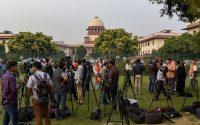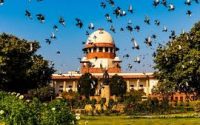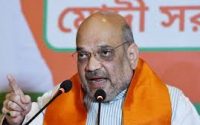$100 Website Offer
Get your personal website + domain for just $100.
Limited Time Offer!
Claim Your Website NowSpying on your body: Health Blueprint and Aadhaar
Source:- nationalheraldindia.com
An important challenge during the Supreme Court’s Aadhaar hearings was the question of whether citizens have absolute rights over their bodies. The government categorically stated that citizens do not have such rights and thus it can collect our biometrics even if we are unwilling to part with them.
While the matter has been put to rest through the Right to Privacy judgment, the government is still hunting us with new schemes through which to collect our bodily information. The National Digital Health Blueprint proposed by the government in fact recommends that government collects our health information to support an illusory information economy.
A successor to the proposed draft health stack, the National Digital Health Blueprint is yet another plan to collect our most sensitive personal information with no data protection law in sight. The Blueprint recommends building health data exchanges with electronic health records using Aadhaar for identification and consent management for providing access to private companies. Recommended by none other than ex-UIDAI chairman J Satyanarayana, the blueprint is yet another scenario of contempt to the Supreme Court’s judgment on Aadhaar.
The interesting part about this plan to collect our health data is that it is just another small component of the larger project to interlink all government databases with Aadhaar. The latest economic survey in fact recommends this grand vision of linking all databases with Aadhaar for seamless flow of information. While the Supreme Court judgment on Aadhaar clearly restricted the private sector use of the UID, the government is encouraging the same in order to achieve its dream of a trillion dollar digital economy, which is being built on top of our bodily information with no regards to our fundamental rights.
Termed innovation and India’s answer to digital colonialism, the government’s plan for several centralised databases only amounts to creating surveillance architecture to police our bodies. Under the pretext of detecting fraud and finding duplicates, these mechanisms have only denied people their right to medical facilities. Recently the government suspended transfer of subsidies being paid to all tuberculosis patients due to irregularities with the centrally designed distribution of benefits.
Centralisation of any data is a potential security disaster waiting to happen. While there were many reports of Aadhaar data being publicly available, the most important and sensitive of them are leaks of Aadhaar-linked health data. There have already been multiple leaks of the medical data linked to Aadhaar numbers of pregnant women in the state of Andhra Pradesh. The UIDAI has always denied that any leak of Aadhaar data has taken place. The late Prof. Shamnad Basheer’s PIL demanding damages from UIDAI for data leaks is still pending in the Delhi High Court.
In the wrong hands, health data can be weaponized to kill people or even target them mentally. The government is handing over this information to insurance companies and hospitals along with our financial information. In the name of getting better deals for insurance, it is likely that health data will be used against the individuals forcing them to pay higher premiums. It is only a matter of time before our health data is sold to advertising companies tricking us into buying into health tourism packages.
The government’s plan to monetise our information and bodies ignoring our rights is nothing new, except now it has no brakes with even the Supreme Court ignoring its own judgements to facilitate further linking of Aadhaar. The Supreme Court’s undermining of its own authority began with the failure to pass orders on contempt petitions in the Aadhaar case. While on paper no one can be denied any benefits for lack of Aadhaar, it continues to be another weapon in the government’s arsenal with which to attack the poor and their fundamental rights.
While this Blueprint and health data exchanges are still under development, systems like Aadhaar will be trialled on society’s most vulnerable. Under the Ayushman Bharat Scheme the health records of the poor are already being collected and linked to Aadhaar. This is happening in private hospitals with insurance companies able to access this information. All of this, without any sign of the Digital Information Security Health Care Act (DISHA) or the Personal Data Protection Act, whose final draft is not yet public.
Related Posts

Ayodhya Case: SC Reserves Order, to Conduct Closed-door Proceedings Today on Mediation Panel Report.

Supreme Court takes up question of marriage before 18

